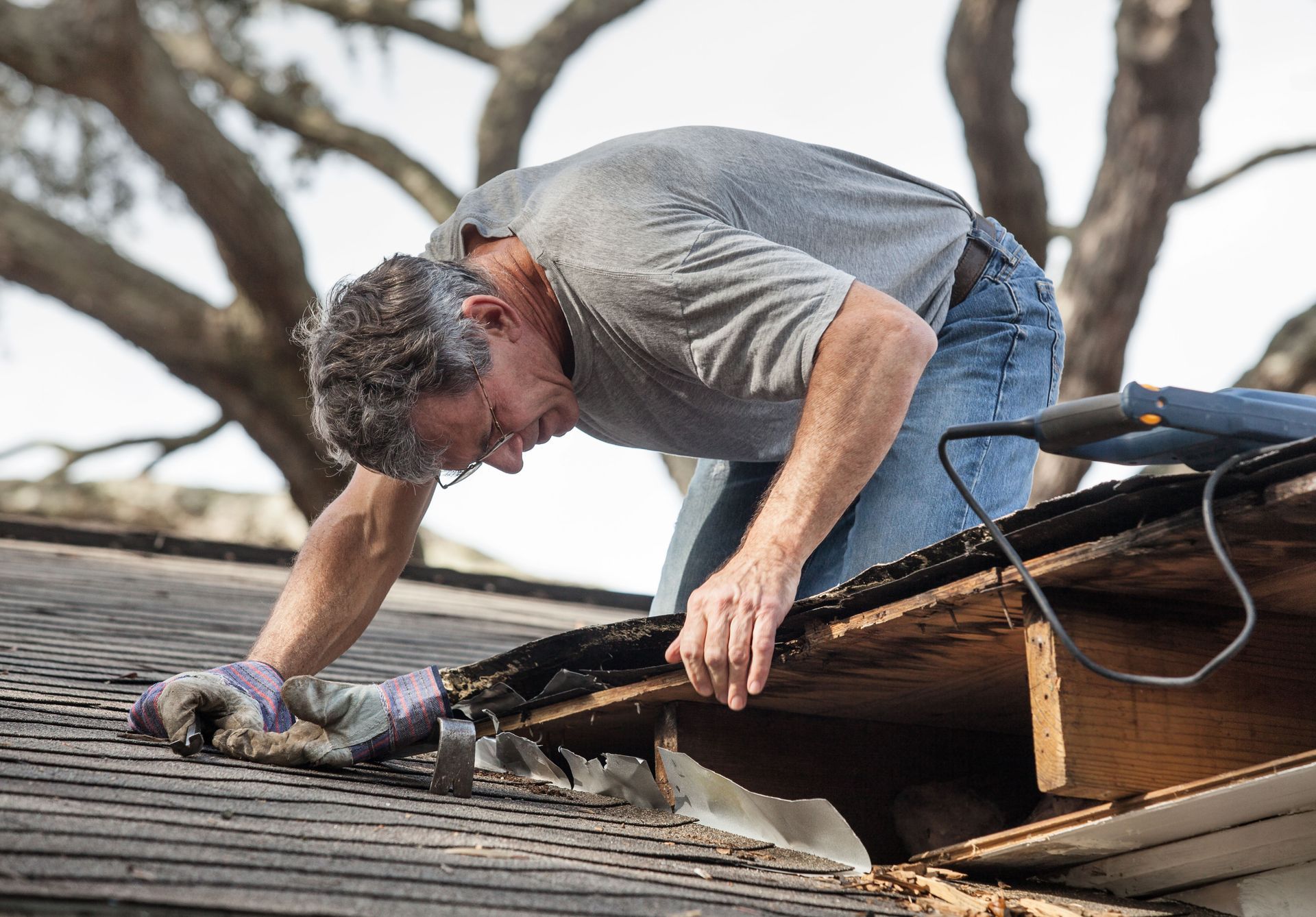5 Questions to Ask Before Booking Roofing Services
When considering roofing services for your home or business, it's crucial to make an informed decision. Asking the right questions ensures you choose a reputable contractor, receive quality service, and get value for your money. Our advice below will guide you through the essential questions to ask before committing to roofing services. Whether it's for simple repairs or a complete roof overhaul, understanding the nuances of choosing the right contractor is key to achieving the best outcome. Here are five questions you should ask to receive comprehensive insights into what needs to be asked and considered to safeguard your investment and ensure quality craftsmanship.
1. Are You Licensed and Insured?
Roofing licenses serve as an official validation of a contractor's qualifications. They are regulated and vary significantly from state to state, often requiring contractors to pass specific exams and meet financial prerequisites. Verifying a contractor's license can usually be done through state contractor boards, ensuring they are legally recognized to perform the work. It's essential to ensure that the license is current and not expired, as this is crucial in safeguarding your property and financial interests. Contracting with a licensed roofer provides assurance of adherence to regional building codes and standards, minimizing potential legal issues.
When vetting providers of roofing services, ask specific questions regarding their licensing and insurance. Inquire about the type of licenses they hold and request to see copies. Specifically, ask for proof of liability insurance, its coverage details, and the policy expiration date. Determine if their insurance policy covers both property damage and worker accidents. Finally, confirm that their coverage extends for the duration of the project, protecting you from any unforeseen issues.
2. What's the Scope of the Project?
A clearly defined project scope sets clear expectations between you and the roofing contractor. It should detail the full extent of the roofing work to be conducted, breaking down each task comprehensively. This document outlines labor, materials, and the timeline aligned with your project’s requirements. A comprehensive scope of work minimizes disputes and ensures both parties are aligned in terms of deliverables. It serves as a critical touchpoint throughout the project, guiding progress and standardizing evaluations of work completed.
Setting a realistic timeline for the roofing project is essential to ensure expectations are met without unnecessary delays. Discuss the projected start and completion dates, and identify any milestones along the way. Many factors can influence the timeline, including material availability and weather conditions, which can lead to shifts in the schedule. A reputable provider of roofing services should provide a flexible yet definitive timeline, regularly communicating updates as the project progresses. Addressing potential delays upfront helps mitigate frustration and sets realistic project goals.
3. Can You Provide References or Testimonials?
Obtaining client references provides valuable insights into a contractor's reliability and work quality. Past client feedback offers first-hand accounts of their experiences, including positive outcomes and potential challenges encountered. Requesting references from a provider of roofing services displays their transparency and confidence in their work. Happy clients are often eager to share their experiences, reflecting well on the contractor's reputation and reliability. Assessing these references can guide your decision-making, providing peace of mind and confidence in your contractor choice.
Examining client testimonials is crucial in determining a contractor's credibility and workmanship. Look for consistent positive feedback concerning timely project completion, communication, and overall satisfaction. Genuine testimonials typically share specific details, reflecting the client's satisfaction with the contractor's professionalism and craft. Be cautious of overly generic testimonials, as they might lack authenticity. A diverse array of feedback discussing various projects showcases the contractor's experience and adaptability in real-world conditions.
Feedback can reveal red flags that may suggest potential problems with a contractor. Look for comments indicating habitual delays, unexpected costs, or poor communication, as these are vital warning signs. Discrepancies between testimonials and reviews can highlight inconsistencies, indicating potential reliability or integrity issues. Patterns of unresolved complaints or deficient crisis management are significant red flags that may point to problematic service. Spotting these concerns early prevents costly mistakes, steering you towards reputable and dependable providers of roofing services.
4. What Are Your Payment Terms?
Clarifying payment schedules is critical in avoiding financial disagreements and misunderstandings. Most contractors follow conventional milestone payments throughout the project, like initial deposits, mid-project payments, and final settlements. Discussing payment schedules aligns both parties on the timing and amount due at each stage of the project. Milestone-based payments provide predictability, aligning payments with project progress and completion. Understanding these schedules protects both financial and project interests, ensuring transparency and clarity throughout the process.
Contractors often require upfront deposits or initial payments to secure materials and commit project resources. However, an excessively high upfront cost can increase risk exposure, necessitating a detailed understanding before proceeding. We've seen that industry-standard deposits typically range from 10% to 30% of the total project cost, balancing contractor needs and client security. Address any reservations about upfront costs through comprehensive discussions and contract stipulations. Mutual agreement on initial costs ensures financial coherence and alignment, protecting both parties from surprise discrepancies throughout the project.
A written contract is an invaluable tool that defines the terms, scope, and responsibilities of both parties. It should detail all aspects, including the scope of work, payment terms, timeline, and warranty provisions. Comprehensive contracts serve as legally enforceable documentation, protecting both client and contractor interests. Opt for detailed agreements that address potential contingencies, ensuring clarity and minimizing potential disputes. Securing a written contract instills confidence and legally supports the engagement, fortifying the relationship from initiation to completion.
5. What's Your Experience With Similar Projects?
Understanding a contractor's experience is integral to anticipating work quality and familiarity with industry standards. Evaluate their experience by exploring previous projects similar in scope, size, and complexity to yours. A seasoned contractor brings established expertise, reducing potential risks associated with inexperience or unfamiliarity. Discuss their approach to challenging scenarios, including issues like storm or wind damage repairs, as these showcase adaptability. Periodically checking for continuous learning or credentials further cements the contractor's commitment to maintaining updated practices.
Contractors specializing in certain roof types are often more proficient in handling specific materials or designs. This specialization can result in higher-quality craftsmanship and efficiency, minimizing errors and resource waste. Consider the contractor's expertise in your desired roofing material, whether asphalt shingles, metal, or tile. Specialization may align with regional challenges, such as contractors adept at handling storm damage in vulnerable areas. In fact, according to the National Roofing Contractors Association, storm damage repairs account for around 30% of roof repair services. These demonstrated proficiencies offer assurance of compatibility and meticulous attention to each system's unique requirements.
Strategically asking questions about the contractor's experience can verify their claims and authenticity. Inquire about the range of projects they've handled, focusing on those similar to your needs and potential challenges. Discuss any prominent issues they have faced, and how their expertise contributed to the resolution and improved outcomes. Ask about professional affiliations or certifications, confirming consistent commitment to industry excellence and knowledge growth. These questions, built on thorough curiosity, ensure alignment and readiness to meet project needs confidently.
Choosing the right provider of roofing services is a decision that requires careful consideration and due diligence. By asking these essential questions, you can confidently select a service that ensures quality results, efficiency, and peace of mind. Remember, the key is to be informed and to never hesitate to seek clarity on any aspect of the project before you proceed. With this knowledge, you will be better able to protect your investment and enjoy the benefits of a professionally executed roofing project. Empower yourself with this knowledge and take the necessary steps to ensure a successful and satisfactory roofing experience.





Share On: